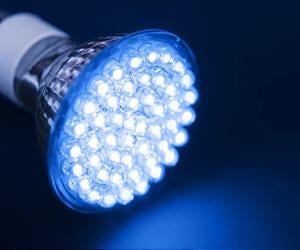by Sterling D. Allan
Pure Energy Systems News
Thanks to Ken Rasmussen for bringing this to our attention.
Here is an excerpt from spacedaily.com
A study by Spanish researchers found that eco-friendly LED lights can be damaging to your retinas, which cannot regrow or be replaced.
The lights produce high levels of radiation in the “blue band” of the light ray rainbow, which, over time, can damage retinas, ThinkSpain reported. [...]
“This problem is going to get worse, because humans are living longer and children are using electronic devices from a young age, particularly for schoolwork, instead of paper,” Sanchez Ramos said. “Eyes are not designed to look directly at light — they are designed to see with light.” [...]
Adding foods to your diet that are rich in vitamin A, such as spinach and peppers, will protect the eyes, Ramos said.
Obviously, a lot more information is needed than is provided in this article, but we present it as a starting point, to put you on notice that LED lighting can permanently damage your eyes.
The article doesn’t clarify examples of intensity of lighting required to create such damage, or length required of directly looking at that light.
I would imagine that there are several variables at play: 1) type of LED lighting, 2) intensity of the lighting, especially in the blue band, 3) duration of exposure, 4) health of the eye, 5) direct staring, without deviation versus active eye movement.
You can glance momentarily at the sun, without damaging the eye.
I’ve submitted some questions to Dr. Celia Sanchez Ramos of Complutense University in Madrid to try and get more info.
COMMENT:
Obelix
www.pureenergysystems.com
PES Network, Inc.
Copyright © 2003 - 2013
http://www.pureenergyblog.com/2013/05/13/1133/8502311_led-lights-ruin-retinas-researchers-say/
